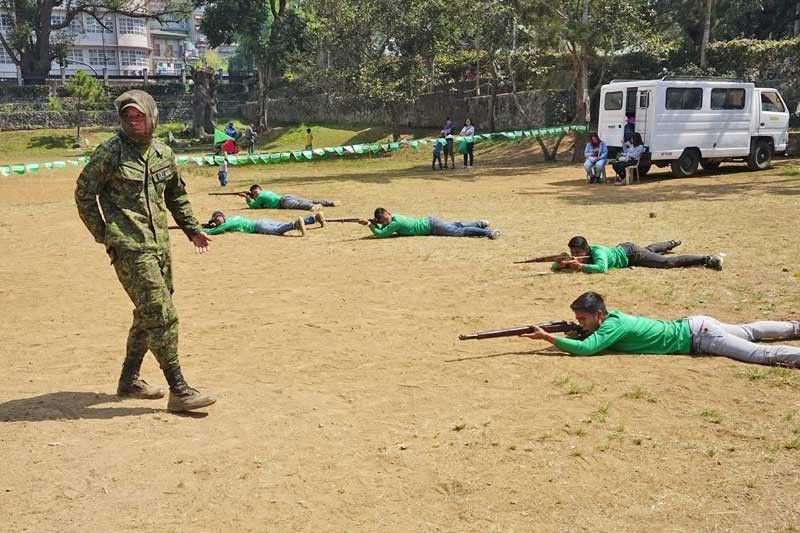Duterte certifies as urgent bill on mandatory ROTC

MANILA, Philippines — President Duterte yesterday certified as urgent the bill seeking the restoration of the mandatory Reserve Officers’ Training Corps (ROTC) program.
In a letter to Senate President Vicente Sotto III, Duterte said restoring basic military and leadership training for the youth would reinvigorate their sense of nationalism.
These qualities are necessary in defending the state and in further promoting the youth’s vital role in nation building, he added.
A bill certified as urgent by the President can get second and final reading approval on the same day.
The House of Representatives passed on final reading the bill reviving ROTC for grades 11 and 12 students last month. The Senate’s version of the measure is still in the period of interpellation.
The mandatory ROTC program was abolished after former president Gloria Macapagal-Arroyo signed the National Service Training Program (NSTP) law in 2002.
Under the law, ROTC is just one of three NSTP components students can choose from, along with Civic Welfare Training Service and the Literacy Training Service.
The death of University of Santo Tomas cadet Mark Welson Chua in 2001 at the hands of his officers and fellow UST cadets sparked a clamor for the scrapping of mandatory ROTC. Chua was killed for exposing irregularities in the university’s ROTC program.
Meanwhile, the Senate has approved on third reading a measure that declares hacking of bank systems as form of economic sabotage, punishable by life imprisonment and a fine of up to P5 million.
Sen. Francis Escudero said the rapid development of information technology and the economic impact of financial fraud and crimes committed through the use of electronic devices and gadgets necessitate the need to provide more teeth to Republic Act 8484 or the “Access Devices Regulation Act of 1998.”
Senate Bill 6710 was approved with 20 affirmative votes, no abstentions and no negative votes.
On top of stiffer penalties, the scope of RA 8484 has been expanded to include automated teller machine (ATM) fraud through skimming, hacking of the banking system, counterfeiting of credit or debit card.
Mere possession of any type of skimming devices or even attempts to access an application or online banking account, regardless of whether or not it will result in monetary loss to the account holder, will now be punishable with imprisonment.
The Senate committee on banks, financial institutions and currencies and the committee on trade, commerce and entrepreneurship recommended the approval without amendments of SB 6710, which provides for additional prohibitions on the use of access devices in commercial transactions.
Under the bill, hacking of a bank’s system, skimming of 50 or more ATM cards or online banking accounts, credit cards and debit cards constitutes economic sabotage, a non-bailable offense punishable by life imprisonment and fines ranging from P1 million to P5 million. – With Paolo Romero, Cecille Suerte Felipe
- Latest
- Trending






























